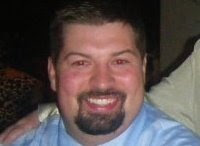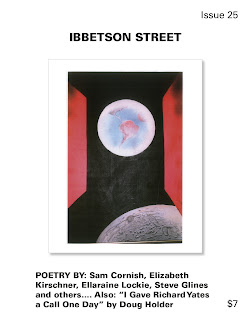
Review of The Collected Poetry of Hugh Fox 1966-2007, A World Audience Book, New York; Newcastle Australia, 2008
By Luke Salisbury
Hugh Fox’s Collected Poetry runs 543 pages. This is a daunting volume and a most interesting one. Many of the poems are short, and the lines are almost always short, so despite sometimes archaic, very personal or scatological subjects, they are remarkably accessible, and frequently, remarkably good.
Twenty-eight different collections are collected here ranging across forty-one years. SOUL CATCHER SONGS from 1967 begins:
Fog opaques the screams
And invisible snakes and ravens
Become visible
I paint snakes on my eye wall
And worship them.
Radioactivity deradioactivates
And the time-fugue precipitates out the
Colloids of pollution.
A reader might ask, are we on the edge of the abyss, or in the abyss? This poet is not going to shy away from anything—internal or external. The next poem begins:
White air and black water,
“Reality is
Cunts and garbage. The hard edge.”
Cutty Sark -------
Straight as a yard stick.
Plane wreck, off the
Beaten path, three dead,
Only the bones of one
Recovered.
Bear tracks
circling the place in the
snow.
Bear mask,
Bear rattle,
Pray to the Spirit of the Bears.
The poems go on speaking of UFOs, “time-flow compartments split op,” and “anoxic space-warp spirits.”
The spectrophotometer
Confirms the validity of
FUCK
The SOUL CATCHER SONGS end:
I am Coyote, Bear,
And all the metamorphoses of
TO BE.
One reads on and is blasted with anthropology (“ALL THERE EVER WAS WAS/THE GHOST DANCE/SPRING-BURN PLANTING/SUMMER HARVEST/AND THE/COMING OF/THE GODS/THE GODS/THE GODS”), science (“Three gods in one bomb--/Sun/Ex-/pan-/ding./Trinity, Zero +”), ancient religion(“Corn-Mother out of the cleft of/Cliffs Corn/Mother of the spread open/Legs Mother of Moisture/Mother of Rain Sea”), eastern religion (“Having become Buddha,/I want to un-numb my legs and jolly my prick”), dirty words (“Mrs. Genghis Cunt,”) dirty notions (“’I’ll suck you off’”), amusing (Verses to “Mrs. Coffinlid”), poignant (“My personal entropy of wrinkles and sags”), mocking (“Sistine chap last judgment/stern,/Thou Shalt Have Children”), visionary (“The Great Goddess/spreads her/rain-cunt/legs”), surreal (“I believe in Christ the Candy Bar/ and the resurrection of the bowels,/eternal life on the conveyor belt/in the cracker factory,/surrounded by the whiskey and streetcorner/cunt saints.”) and wide, wide erudition. One is sometimes tempted to ask, is the poet serious? I would answer, yes, I think he’s deadly serious. He’s even serious when he’s not serious.
I don’t always understand what Fox is saying but I like it. I like the energy, concision, rhythm, the anger. I like being shown territory I don’t understand. That’s what I mean when I say it’s accessible. Something in almost every one of these poems pulls me in, holds me, spits language I can’t deny in my face.
Yes, I like it.
Later in FOR RICHARD (DICK) THOMAS’ FIFTIETH BIRTHDAY, Zerx Press, 1991, the subject becomes personal. The poet seems to be writing about friends, ex-wives, his children, family patterns functional and dysfunctional. Me and You, Kid is elegiac:
Everyone else gone,
Just me and the kid in the
Big old house,
For a while it’s going to
Be a pain,
And later:
You’d think 24 hours a
Day would be heavy for
Us both,
No baby sitters,
No separation,
But what it does is
Show the bones of
The bond between
Us,
And:
God,
A few weeks and
He’ll be gone
Too,
As if anyone ever went without
Leaving a ghost behind.
Or Enough from the collection TIME: The Plowmen, Whitby, 1992:
… there’s a picture on
The wall of the boy when he was
Two, light years ago, chunky,
Squat, fat-faced, not Bojangles
Loose-limbed basketball playerish
The way he is now, it’s four months
before the next visit, and you lament
not just the absence and emptiness,
but for the illustration it all provides
of the infinite hunger of
Time.
Fox’s poetry is not all garbage and cunts, astrophysics, Mayan mythology and borrowing as eclectic as Ezra Pound, it’s about loss, sadness, how everything goes away. Some is quite beautiful. If you’ve got the ear, stomach, and intellect, I recommend Hugh Fox. You won’t be bored. And, like me, you may like it.
Luke Salisbury/Ibbetson Update/Somerville, Mass. June 2009.
** Luke Salisbury is a Professor of English at Bunker Hill Community College in Boston and teaches English and Film. He is the author of The Answer Is Baseball (Times Books, 1989; Vintage, 1990) which The Chicago Tribune called the best baseball book of 1989, (A Common Reader said, “Salisbury reveals the heart of the sport better than writer I’ve read,” No. 47, April, 1991), and a novel, The Cleveland Indian (The Smith, 1992; paperback, 1996) which was nominated for the Casey Award in 1992 as best baseball book of the year, and was studied at Indiana State University in an American literature course. Blue Eden, a novel in three stories, (The Smith; hardback and paper, 1996). Ellery Queen Mystery Magazine said, “The middle tale, ‘The Number of the Beast,’ is a gem.” Hollywood and Sunset, a novel will be published by Shambling Gate Press, fall 2005. Mr. Salisbury contributed to Red Sox Century: One Hundred Years of Red Sox Baseball, Baseball & The Game of Life, Ted Williams: A Portrait in Words and Pictures, DiMaggio: An Illustrated Life, Jackie Robinson: Between the Baselines, Fall Classics: The Best Writing About The World Series’ First Hundred Years and wrote Chapter 9 of a Treasury of Baseball, published by Publications International Ltd. His work has appeared in the Boston Globe, Ploughshares, Stories Magazine, Pulpsmith, Fan, Elysian Fields, Spitball, Nine, SABR Review of Books, Cooperstown Review, and (in translation) AERA, the Japanese equivalent of Time. He is a past vice president and national secretary of the Society For American Baseball Research (SABR). Mr. Salisbury was the first keynote speaker at Nine Magazine’s Annual Spring Training Conference (1994), and was a frequent guest on Channel 2 Boston’s “Ten O’clock News,” “The Group,” and “Greater Boston,” New England Cable News Network, Comcast’s Sports Pulse, and WBUR’s “Connection.” He was featured in AMC’s “Diamonds On the Silver Screen,” HBO’s Curse of the Bambino and wrote the Krank column for Boston Baseball from 1996 to 1999.
Mr. Salisbury attended The Hun School, New College, and received an MA in Creative Writing from Boston University. He once taught third grade in the Bronx, and now lives with his wife Barbara and son Ace in Chelsea, Massachusetts.





















































